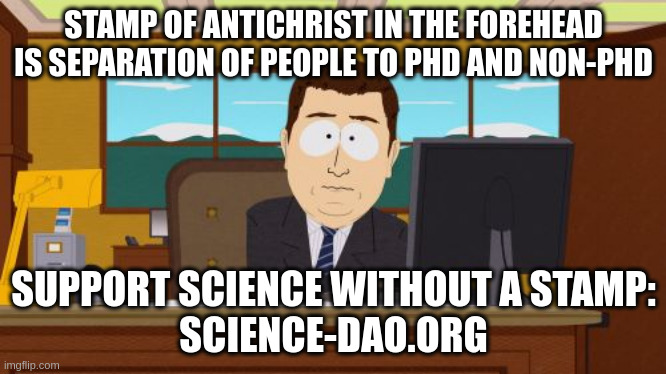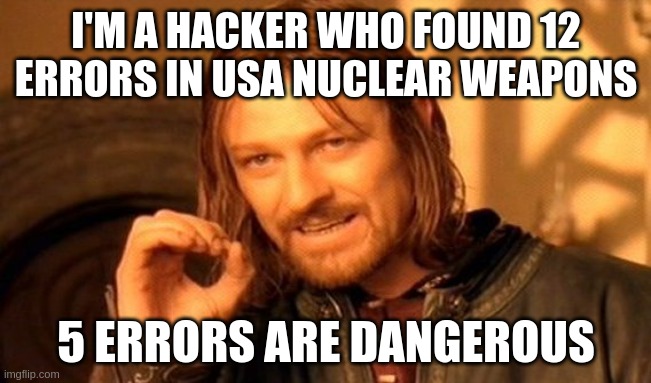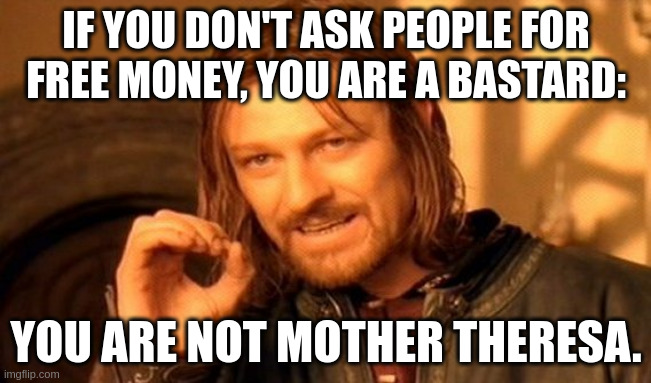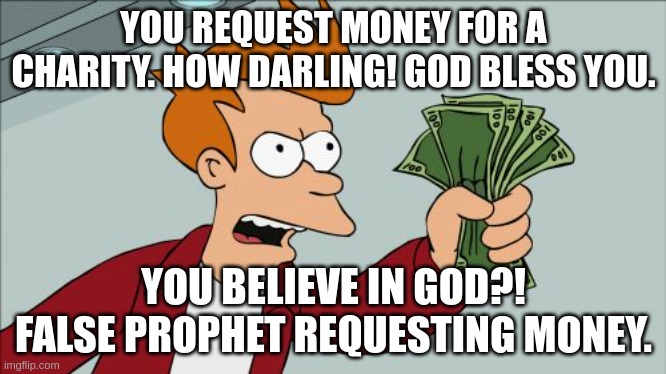Should Christians follow commandments or love? It looks like impossible to combine both, but “the mystery of the Gospel”, what Jesus hid from His disciples, explains it in a surprising way. How the philosophical quest of morality is resolved by Jesus.
This article is dangerous: If a non-saved person reads it, he/she loses ignorance needed to enter the Church and is destined to hell. I nevertheless publish it openly for the purpose of growth of Jesus, as the first verse of the Revelation of John can be translated “The revelation for Jesus Christ…”
Imagine a young Christian—perhaps someone like your son or daughter—sitting in a college classroom. A professor challenges their faith with sharp questions they can’t answer. Doubt creeps in, and without the tools to think critically, their beliefs start to unravel. This isn’t just a hypothetical; it’s happening every day. At After Gospel, we’re fighting to equip Christians with the philosophical skills they need to stand firm—but we can’t do it without you.
Without philosophy, Christians are defenseless in a world of tough questions and slick arguments. Picture a parent unable to explain why they believe to a curious child, or a student walking away from church after a debate they couldn’t counter. We’ve seen believers lose their footing, swept away by trendy ideas or paralyzed by doubt. This isn’t just a personal crisis—it’s a threat to the Church’s future.
To become a Christian, you must repent of sins. To do this, you need to understand what is sin and what is to repent. If you understand this, you are a philosopher.
A famous philosopher Immanuel Kant thought that for a thing to be in “good space” (he called it moral imperative), it should be a thing that would fit to be an universal law. Kantians believe that moral choices should be based on some (abstract) moral law.
Meanwhile the New Testament teaches to live not under a law: (Gal. 2:16) “knowing that a man is not justified by the works of the law but by faith in Jesus Christ, even we have believed in Christ Jesus, that we might be justified by faith in Christ and not by the works of the law; for by the works of the law no flesh shall be justified.” To live by no law means that no law (including a moral law) instructs you: You simply do good and it is not under a law. It means, whatever advanced (both legal or moral) law is, it is not enough to do good.
In more details: There are two kinds of morality: morality based on rules and morality based on outcome (if you know a third option, write to me, I don’t know such one). The morality based on rules has this kind of problem: In such a morality situations like this emerge: You followed all traffic rules but crushed a person, is that right? Crushing a person is an example of an outcome that may happen, even if all rules are followed. Or in a moral based on rules, it would be bad to kill Hitler, because it is, well, killing. This article explains the biblical philosophy on the two kinds of morality.
So, the morality of Kant and after him of most Christian preachers is based on rules. But I argue that love should be the main principle of morality.
So, back to the Bible: What is a sin? (Matthew 7:21) “Not everyone who says to me, ‘Lord, Lord,’ will enter the kingdom of heaven, but only the one who does the will of my Father who is in heaven.” We see from this that sin is to do contrary to God’s will. Obviously, God’s will is some standard of good: a comparison which things are better and which are worse. To enter the kingdom, need to do the same: choose good. So, in its broadest sense, a sin is just a choice of a thing that is worse than the perfect good choice (God’s will). If you think that God’s will is the same as His commandments, you fall in the same trap as these MPs who forbid prostitution: This leads only to it going illegal, without proper medical care, so inflating the number of people with STI. If you only follow rules, you may not have love.
(Jam. 4:17) “Therefore to him that knows to do good, and does it not, to him it is sin.” This means that God requires us to choose good always, every time we understand how to do it (otherwise, sin is to him, not to saving grace of Christ and the grace does not work). I think, one-time violation of this rule (without repentance) warrants hell. That’s because, when you refuse to do good, you refuse your prior asking God to make you doing good, that you asked from God when you converted (if you ever converted). In Christianity, there is no place at all for “freedom” to choose sin. Of course, we many times don’t know how to do good, in that case this verse does not apply. There are two kinds of sin: unintentional one (compatible with salvation) and willful one (not compatible with salvation!) That means an astonishing thing: If you even once deliberately choose not the best way to live, you are in danger of hell! This means that all your life need to be the “job” of doing good and nothing else: As a Jewish rabbi (Rabbi Nachman of Breslov) taught, when we sleep we by it serve God, because sleep gives us more power to do good.
You see, the concept of repentance is based on the concept of sin. A sin is any choice that is not the best. Above it’s shown that no willful sin is pardoned. When a new Christian converts, it means that he/she asks from God not to commit sins again. It can be properly asked, only if he wants not to sin, that is wants to always make the best choices. If a human wants and can, he/she necessarily does. It logically follows that a converted Christian commits no willful sins: If he can not to commit a sin, he/she doesn’t commit it, because he also wants (can+want=>does). No Christian even committed a willful sin. This means, that never a Christian did a choice that he/she does not consider the best one. For example, if a Christian buys something, he buys what is best not for him/her but the best for the service to God. (Service to God includes keeping yourself well-fed, but if you serve to God, you would want to well-feed other people, too, and want+can=>do.) If you did any willful sin, that is made not the best choice you know, e.g. in money, you need to convert again.
You may respond: Jesus said: (John 14:15) “If you love me, keep my commandments.” Thus (if we take this your supposed position) the morality of the New Testament is indeed based on rules. You mean that you wouldn’t kill Hitler, because killing is forbidden, don’t you? I just trolled you by the question in the previous sentence. Speaking seriously, in the Bible there are both morality based on rules and morality based on outcomes. And I am going to explain you their intricate interconnection in words of Jesus. So allow me first to speak first of morality based on outcomes:
If you love somebody, you will do him/her good even without any commandments. And you may try to follow all the commandments and not to do good to a person who you don’t love. The New Testament teaches that without love all efforts are vain. Love is an universal adherence to God’s will.
In fact, in the world the word “love” is often used in the reverse sense to its biblical meaning. For example, there is a movie A.I. Artificial Intelligence (or simply A.I.) is a 2001 American science fiction film directed by Steven Spielberg. Accordingly the plot of the movie, love of the robot is the inability to change the owner. Based on this logic, people say that they love their relatives (as one cannot change who are their relatives). But the Bible teaches: (1John 4:16) “And we have known and believed the love that God hath to us. God is love; and he that dwells in love dwells in God, and God in him.” To dwell in God means not to be limited to love to a limited set of loves ones, but to love all that in God. So, the love, as it described in that movie, would be true love only if it were directed to God (not to the owner of the robot). Do I speak my imaginations or is it confirmed by God’s word? (2Jn. 1:6) “And this is love, that we walk after his commandments.” Nothing about relatives here, while the devils tries to persuade us to love relatives and established friends.
Simply put, love is the desire that everybody would, if possible, become richer (not in money only). I know that from the words of Jesus: (Jn. 14:28) “You have heard Me say to you, ‘I am going away and coming back to you.’ If you loved Me, you would rejoice because I said, ‘I am going to the Father,’ for My Father is greater than I.” This explain what the word “love” (agape in Greek, not other words also translated “love”) means: it is to wish for someone to go to something greater than he has. Note this paragraph: I explained you in simple words what is agape.
There is a simple principle: If you want and can, then you do. If you want somebody to become richer, you are ready to pay him your money. Otherwise you either can’t (have an empty bank account) or don’t want (don’t love). Because love is a “want” and want+can=>do, love can’t be without deeds (unless you can’t). Love moves money from your purse to charity (“charity” is another meaning of the word agape).
God demands from us love and any sacrifice that is less than love is not accepted: (1 John 4:8) “He that loves not knows not God; for God is love.”
Who try to follow commandments but don’t love, are called Pharisees and hypocrites. That should be clear for every Christian.
The first solution, that I thought of, for commandments looking like being against love, is: consider commandments as a mere advice, not a command, or commands for the time and situation Jesus was preaching at, not for modern times. But this idea fails: The commandment to confess Jesus before sinners was kinda harmful since the beginning. So, we need to understand that commandments are indeed a command, not an advice.
But God gave commandments and this is important. Now, having the commandment “don’t kill”, would you kill a maniac who is going to kill ten people, unless you kill him? Different Christians answer differently on this question. What do I advice in this regard, to kill or not such a maniac? The short answer is “It depends.” The long answer follows below.
I will describe my personal moral dilemma that I had, when I was young. My mother was strongly opposed to Jesus commandments (for the stupid reason that she didn’t like His manner of speaking, especially “True, true, I say to you…”, challenging His right to speak in this manner.) Because of this, I was punished for my commitment to the Gospel by hits by my head of a big frying pan thing (and also by hunger). As the result I was going mad (temporarily). BTW, I will explain below how going mad from a hit to the head doesn’t contradict to the biblical concepts of soul and spirit, that, preachers say, our mind is located in. Going mad, I caused extreme harm. For example, after being driven mad, I raped somebody. For another example, I broke security against hackers in the entire Linux software industry by giving a deliberately (or, more exactly, “decided” by the frying pan) wrong advice to an engineer. I also lost the opportunity to become a math professor because of my attempt to follow Jesus. How much more good deeds I could do, if I were a professor!
If I didn’t follow the commandments (but would do, as was required by my mother, “Just believe, don’t follow commandments,”) there would be no this rape and this wrong advice due to which everybody and you lost security. There would be no such harm. If you think, you not an animal without mind, your mind should immediately raise the question: Why did Jesus give such commandments that may lead to harm? Jesus is perfect, so He knew it will produce such results. So, the harm produced by Jesus is deliberate. Why then did He make the deliberate choice to produce this harm?
I am not an alone person who did such a harm under Jesus’s influence. Consider every Christian who opposed homosexuality, lost the job for this and became a homeless, a person who spreads diseases. That’s extremes (big things), but in small things one would also lose, if holding tight the commandments.
I considered: Maybe, the commandments are mere advice rather than commands, or that commandments of Jesus were just for people of that time and his environment. I thought: Apparently, for example, the commandment “don’t commit adultery” was right only till invention of condom, wasn’t it? I would decide so, if not the special commandments that does not fall into this pattern (“was right in the past, but now it is outdated”), the commandment not to deny Jesus before sinners and the commandment not to be ashamed by Jesus. That commandment was causing harm in time of Jesus, too. It is not outdated, it is plainly wrong that Stephan has been killed. It is wrong now and it was the same way wrong in the time of Jesus.
Actually, trying to follow the commandments of Jesus and understand what purpose they are, I came to making choices that make me poorer, not because I wanted to be poor but because I didn’t find another criterion of what is sin, except that sin (such as theft) may make richer, therefore I leaned into the direction to be poor.
Stop reading here and try to find an explanation: Why did Jesus give commandments that are known to regularly cause harm? And this is a harm not only to the follower of Jesus but also to these who are around.
I will tell you the explanation. I spent literally tens of years thinking about this without an explanation, and am sure that the explanation, that I finally found, is the only possible explanation.
Jesus directed us to receive illegal harm from others in order for us to receive a compensation from God. So far, so good. But why did He make us to harm others?
Stop here and think:
- What Jesus did as a lawyer? He took our guilt onto himself.
- What we did? We suffered together with Jesus.
- What did Jesus require from us? Faith and trust to follow the commandments even in worst scenaria, do whatever Jesus said, no matter how wrong it seemed.
- What we needed to get the prize? Patience.
- Who receive the biggest reward? Those who have been broken their head as a punishment for Christianity (holy fools – we will get a new head, better than one broken).
- The soul in this world (brain electricity) needs to be broken by blow to the head due to religious discrimination in order to save the soul for the eternal life (cosmic electromagnetic waves). Who saves his soul in this world, loses it; who damaged it for the commandments of Jesus, saves it.
- What the last among Christians (not able even to buy a Bible due to discrimination) stand? The first ones. What are the most winning Christians (the first)? They stand the last.
- If you count yourself below others, you would allow them to shit you (for a plus to your karma).
- What can we boast about? Our weakness and deficiencies.
- (Heb 2:16) “For clearly He does not give help to angels, but He gives help to the descendants of Abraham.” That’s because angels are too smart to be “hunted” into this Jesus’s scheme.
I shot into the point, didn’t I? The meaning of previously seemingly illogical Christianity became clear: guilt on Jesus, suffer with Jesus, faith, patience, holy fools, lose the soul in this world for eternal life, the first are the last, etc. I “shot” precisely into the true meaning of Christianity.
Why the Hell
Now it also becomes clear, why loving God sends unbelievers to the hell:
The hell is required for consistency of God’s judgment: If God rewards Christians for spoiling their souls, then for consistency of the court decisions somebody needs to be judged for this evil. Otherwise it would be that the court claimed that somebody needs to be rewarded in this exchange because a real evil happens, but nobody would be punished. This would make God a liar (both accepting and rejecting this exchange of evil and good in the legal process), what cannot be.
Idealism vs Materialism
Here I will discuss idealism vs materialism as applied to human soul, not about existence of God (we know, that He exists).
Idealistic philosophers like Hegel believed that human is a “pure spirit”, a thinking “substance” separate from the matter. But science tells that humans think with the brain, what is easily proved by the fact our minds are legible to physical influences (hits by head, alcohol, LSD, to name a few). If we were pure spirits, accordingly Hegel, LSD would have no effect on our minds.
Interpreters of the Bible are easily leaned to “pure spirit” interpretation, because the Bible names something called soul and spirit, that are not parts of the brain but have their own minds. I will however give a materialistic explanation what is “the soul”, that agrees to both the Bible and the science:
The soul can be considered either as a backup copy (that God stores) of the brain or electromagnetic waves radiated by the brain. These waves go to the outer space and keep living in heavenly spirits. So, it becomes clear what Ephesians tell about us “sitting” in heavenly places (already now, not only after the death). So, in full accordance with the Bible, a human has a soul that is distinct from his/her brain, and has mind on its own.
We however can remain in the delusion of idealism, while our brains are not affected.
Interpretation of Matthew 25:31-46 (sheep and goats): The growth of Christ happened when we suffered with Him, because one suffering with Christ receive compensation for their suffering that grows Christ’s “riches”. If a nation leaves somebody without help, he cannot remain an idealist and begins to spread materialism that is incompatible with suffering with Christ. For this reason this nation “dies” as Christians. The least of brothers of Jesus mentioned in this passage was me, because I was very big with minus (I used magic of thoughts to provoke terrorism and finally a thermonuclear war, so I was the worst magician of all). I, the least of the brothers, suffered with no food and beating, that made my stupid idealistic philosophy incompatible with practice and impossible. Therefore, I turned to new philosophy that is the end of the Gospel, making finally unable who hears me to suffer with Christ. Jesus told about separating nations rather than people. Now there is one nation due to Internet and English. Do therefore all the big nation go to the eternal fire? So, one not feeding a hungry imposes a limit to growth of Christ, making Him relatively “hungry” by placing end on idealism.
On the other hand, “if a seed falling to the ground does not die, it remains alone. If it die, it brings much fruit”. This proverb is almost literal: If somebody does not die for the gospel (Seed symbolizes the Gospel.), he/she will live eternally without sex and children (“alone”), but who dies for the Gospel (accordingly my end of Gospel theology), he will become a god/elf/Nibirian, will have sex and septillions of descendants.
The problem is that Jesus did not address (kept silent about) the trolley problem for His followers: a Christian example of this problem would be: If a Christian physician denies Jesus before an evil regime, that kills everybody confessing Jesus, the physician will survive and heal dying 10 people, 5 of which would accept Jesus. We have +4 in confessing Jesus, if the physician denies. Should the physician deny Jesus? Personally I had a similar but much greater magnitude problem: I was a young mathematician (already that time) having an important formula, that would advance civilization by trillions of dollars, + future perspectives and I would die confessing Jesus, because my mother hated Jesus and was ready to kill me. Should I have denied Jesus before that mad woman to save life of millions of people, who would benefit from greater world GDP?
Jesus didn’t told us a way to deal with trolley problem, but simply made commandments that look like incompatible to a reasonable solution of trolley problem, to confuse us. Especially consider his commandment not to deny him in words and not to be ashamed of his words. This looks like not to have a reasonable explanation: We are told to play a game with words and to be murdered for winning a game. That looks like a nonsense: What in the world would become worse, if we’d lie that we are not Jesus followers? Why for a game that Jesus plays with us, us to be tortured and murdered?
So, we have a principle of a cross execution: I was strongly pulled in different directions by different moral indicators, like a person hanging on a cross is physically pulled in different directions what leads to suffering and death.
What is the solution of the trolley problem, that a Jesus’s follower should choose? The answer is unexpected: The best solution depends on whether you know why Jesus put certain moral orientations: If you don’t know why, you should choose following commandments (that physician would refuse to deny Christ); if you know why, you should choose following love, even if to do it you need to break commandments (that physician would deny Christ to save ten people from death).
Jesus calls himself an advocate lawyer in (Jn. 14:16) “And I will pray the Father, and he shall give you another Comforter, that he may abide with you for ever.” (He says that Holy Spirit is another advocate (“comforter” is also translated as an advocate), implying that Jesus is an advocate, too.) So, Jesus is a lawyer. He made us to be under illegal attack of others (“I send you like sheep among wolves.”), in order for God’s court to pay us a compensation. Jesus just wants us to receive a God’s compensation for crimes committed against us. But harming ourselves, we harm others (like that physician taking lives of 10 more people together with his own life). Therefore, if we know the purpose of Jesus to harm us, we must stop doing so, because this way we would intentionally harm others, what is not a good deed. God’s court will consider these who we harmed this way our slaves (because they depend on our adherence on Jesus’s commandments: we decide for them), and therefore the physician would receive God’s compensation not only for his own death, but also for death and any failures of his 10 slaves, having so his soul up to 11 times more valuable. (All failures of slaves are considered his own failures, so he gets compensation from God for these unsuccessful cases.)
Which kind of slaves is it about? (2Pet. 2:19) “for of whom a man is overcame by, of him is he a slave.” It is a very simple principle: anyone who is inferior of another in the Kingdom of Heaven, he/she follows all commands of the upper. If someone is better than you an inch, and you enter the Kingdom of Heaven, then you will follow all his/her commands. If you disagree, you don’t enter Kingdom of Heaven. Who are more efficient algorithms rule over less efficient algorithms.
So, before this revelation, when we slavishly followed Jesus’s commandments, our best solution of the trolley problem was to avoid violating a commandment of Jesus, even if violating it leads to a greater good.
What is our new position on the trolley problem? We just should maximize good, in any way of our acting, that we can. We can, for example, kill to save more lives. Before we would do this too, but then we would lack a greater compensation in God’s court.
Jesus said: “Let not my will be, but of the Father”. We were hardened in understanding what it means. It means simply “Father, stop me!” Jesus wanted to stop being kinda a corrupted lawyer. Jesus also said, “Let this cup be removed from me as soon as possible.” Through Paul, Jesus also delivered: (1Cor. 11:25) “This cup is New Testament in my blood.” Simple substitution gives: “Let New Testament in my blood be removed from me as soon as possible.” Jesus wants to end the New Testament and do it as quickly as possible. I no more take Eucharist (“New Testament in His blood”).
So, now love is our only guiding principle, no more commandments. (We should follow love, not because it is a commandment, but because it is our purpose.)
What does this means in practice? It means first and foremost to combat climate change, because it is one of the main problems of mankind.
I was unable to serve for climate, because of the commandment not to add to words of God and the commandment to love neighbor. This combinations of commandments was making me unable to add and love distant people too, what means foremost to do deeds to save them in climate emergency.
When we were followers of Jesus’s commandments, most of us were restricted by (1Tim. 5:8) “But if any provide not for his own, and specially for those of his own house, he hath denied the faith, and is worse than an infidel.” Now, we are free to follow love: If you need to kill your relatives by hunger in order to save climate, do it.

I have an important climate project. | Donate for it. I also have discovered ordered semigroup actions and some related things, what makes a big revolution in mathematics. Donate for building and spreading this knowledge that can raise world GDP like 2 times in 30 years.
If you didn’t donate, it means that even now, when you were freed from commandments that hindered you from acting about love, you don’t act on love. If you don’t donate, this simply means that you don’t have and never had love. Join me in love-driven action or miss the chance to change the world.
Is stealing to donate to a climate or science project good or bad? If you are caught, it is bad, because having been caught you cannot anymore serve for climate. But if you are uncaught, it is good.

There is a fairly tale about “Koschei the Immortal” who carefully “keeps his death”, that is protected himself from being killed. The state and banks do the reverse thing: keep me and others from having enough money to help them to live. If a bank would allow me to rob it, it would be good for the bank, because with money I would be able to publish my scientific research and help everybody including the bank that carefully keeps money against using them for good.

I also promised to explain what is soul (how then people go mad being hit by head, if the mind is located in the soul?) Soul can be understood either as warranty (that you’ll resurrect if die and will be healthy) for the body and the brain or as electromagnetic radiation of the brain. People don’t have any special “organ” to pray or read Bible, only the brain for all kinds of information (including the “spiritual” one). The soul (brain waves), however, keeps living in the outer space, both while a human is yet alive ((Eph. 2:6) “And hath raised us up together, and made us sit together in heavenly places in Christ Jesus”, where Christ means all the electromagnetic radiation in the world: (Mt. 5:14) “I am the light of the world,” in other words Christ is electricity – the force that penetrates all keeps everything together) and after the death for eternal life in the heavens.
If you are not ashamed being a saint, then you will be hit on the head for saying “shameful” religion, you will become crazy (for example, a rapist maniac or just a jerk). Thus, you have ruined your soul in this world (“soul in this world” is how Jesus called brain electricity), and therefore saved it for eternal life (that is saved radio waves emitted by your brain to cosmos), accordingly the principles of God’s court paying you a compensation. (John 12:25)
If the seed of the Gospel died for you, freeing place for love, then well-done! You will be taken to the heaven where God Himself lives and have there sex with persons of opposite sex taken to the heaven and bring septillions of descendants.
Donate for climate, science, and collaborative Bible-study software. If 10% of you donate $100, the projects will succeed.
Join the mission today.

